AI
AI chatbots healthcare, AI clinical decisions, AI data privacy, AI diagnostics, AI disease detection, AI drug discovery, AI healthcare applications, AI healthcare ethics, AI healthcare future, AI healthcare innovation, AI healthcare systems, AI healthcare technology, AI hospital management, AI in healthcare, AI medical imaging, AI medical robots, AI mental health, AI nursing support, AI oncology, AI patient care, AI personalized treatment, AI predictive analytics, AI radiology, AI remote monitoring, AI surgery, AI telemedicine, AI wearable devices, artificial intelligence medicine, healthcare automation, medical AI
Worker
0 Comments
AI Applications Transforming Patient Care in Modern Healthcare
Introduction
Artificial Intelligence (AI) has ended up one of the most capable strengths reshaping businesses over the globe, and healthcare is no special case. From moving forward quiet care to optimizing authoritative assignments, AI-driven arrangements are revolutionizing how advanced healthcare frameworks work. The developing integration of AI in healthcare illustrates its potential to not as it were spare costs and time but moreover to upgrade exactness, effectiveness, and persistent results. As computerized change quickens, the healthcare industry is entering a modern time where shrewdly machines collaborate with restorative experts to convey higher-quality care.
Early Malady Location and Diagnosis
One of the most noteworthy commitments of AI in healthcare is its capacity to distinguish illnesses at an early organize. Progressed calculations can analyze endless sums of therapeutic information, counting imaging filters, blood tests, and hereditary profiles, with unmatched speed and accuracy. For case, AI-powered symptomatic devices are able of distinguishing cancers, such as breast and lung cancer, prior than conventional strategies. Machine learning models prepared on thousands of cases can spot inconspicuous designs that might be missed by human eyes, diminishing symptomatic blunders and empowering convenient treatment.
Enhancing Restorative Imaging and Radiology
Medical imaging is another zone experiencing a gigantic change due to AI. Radiologists depend intensely on innovations like X-rays, MRIs, and CT checks to analyze conditions. AI-based frameworks presently help in deciphering these pictures with tall precision, frequently identifying anomalies undetectable to the human eye. Profound learning calculations can highlight suspicious regions, prioritize critical cases, and indeed give preparatory reports, hence decreasing workload and assisting analyze. By acting as a moment conclusion, AI fortifies the unwavering quality of radiological evaluations whereas guaranteeing that basic conditions are not overlooked.
Predictive Analytics in Quiet Care
AI is not fair almost analyzing past information but moreover around anticipating future wellbeing results. Prescient analytics fueled by AI can expect illness dangers, healing center readmissions, and persistent disintegration some time recently they happen. For case, AI apparatuses in seriously care units (ICUs) screen real-time quiet information, alarming specialists when a quiet is at chance of cardiac capture or sepsis. These prescient bits of knowledge empower proactive mediations, sparing lives and diminishing healing center costs. Additionally, prescient models help in populace wellbeing administration by distinguishing bunches at chance of incessant conditions, permitting for early preventive measures.
Virtual Wellbeing Colleagues and Chatbots
AI-driven virtual wellbeing associates and chatbots are changing how patients associated with healthcare frameworks. These advanced instruments are accessible 24/7, giving patients with solid data approximately side effects, drugs, and arrangement planning. Chatbots diminish the burden on healthcare staff by replying schedule questions, whereas progressed virtual colleagues can direct patients through post-surgery recuperation, guaranteeing pharmaceutical adherence and observing advance. Such apparatuses improve openness, especially in locales with constrained healthcare framework, bridging the crevice between patients and therapeutic expertise.
Robotics and AI in Surgery
Robotic-assisted surgeries, fueled by AI, have revolutionized the working room. These frameworks give specialists with improved accuracy, adaptability, and control amid complex methods. AI-driven robots can analyze surgical information in real-time, helping specialists in making precise entry points and minimizing complications. For occurrence, automated frameworks in orthopedic surgery offer assistance adjust inserts with exceptional exactness, driving to quicker understanding recuperation. Whereas human specialists stay central, AI-powered robots act as progressed associates, guaranteeing more secure surgeries and made strides understanding outcomes.
Streamlining Authoritative Processes
Beyond clinical care, AI is playing a crucial part in streamlining regulatory forms in healthcare. Clinics produce enormous sums of printed material, from persistent records to charging and protections claims. AI frameworks robotize these assignments, decreasing mistakes and sparing time for healthcare experts. Characteristic Dialect Handling (NLP) instruments can extricate significant data from unstructured clinical notes, whereas AI-driven charging frameworks distinguish false claims and minimize authoritative burdens. By lessening bureaucracy, AI permits specialists and medical caretakers to center more on quiet care or maybe than paperwork.
AI in Sedate Disclosure and Development
Drug revelation has customarily been a time-consuming and exorbitant prepare, frequently taking a long time sometime recently a unused medication comes to the showcase. AI has significantly quickened this handle by anticipating how particles will associated with human science. Machine learning models can analyze tremendous datasets of chemical compounds to distinguish promising medicate candidates rapidly. Amid the COVID-19 widespread, AI played a basic part in immunization and medicate inquire about, making a difference researchers create medicines at exceptional speeds. By shortening inquire about timelines, AI not as it were spares cash but too brings life-saving solutions to patients faster.
The Future of AI in Healthcare
Looking ahead, the part of AI in healthcare is as it were anticipated to develop. Progresses in machine learning, normal dialect handling, and mechanical technology will empower indeed more modern healthcare arrangements. Future applications may incorporate AI-powered mental wellbeing bolster frameworks, hereditary designing breakthroughs, and completely robotized healing centers. In any case, the extreme objective is not to supplant human specialists but to upgrade their capabilities. By combining human sympathy with machine insights, healthcare frameworks can convey a level of care that is both proficient and compassionate.
Conclusion
Artificial Intelligence is no longer a cutting edge concept; it is effectively changing cutting edge healthcare frameworks nowadays. From early conclusion to personalized medications, from prescient analytics to mechanical surgeries, AI has gotten to be a basic driver of development in medication. It progresses precision, upgrades effectiveness, and guarantees superior quiet results whereas decreasing costs and authoritative burdens. In any case, as healthcare grasps AI, it must moreover address moral challenges and protect understanding information. The collaboration between innovation and therapeutic mastery guarantees a healthcare future that is more intelligent, more available, and significantly patient-centered.
Share this content:



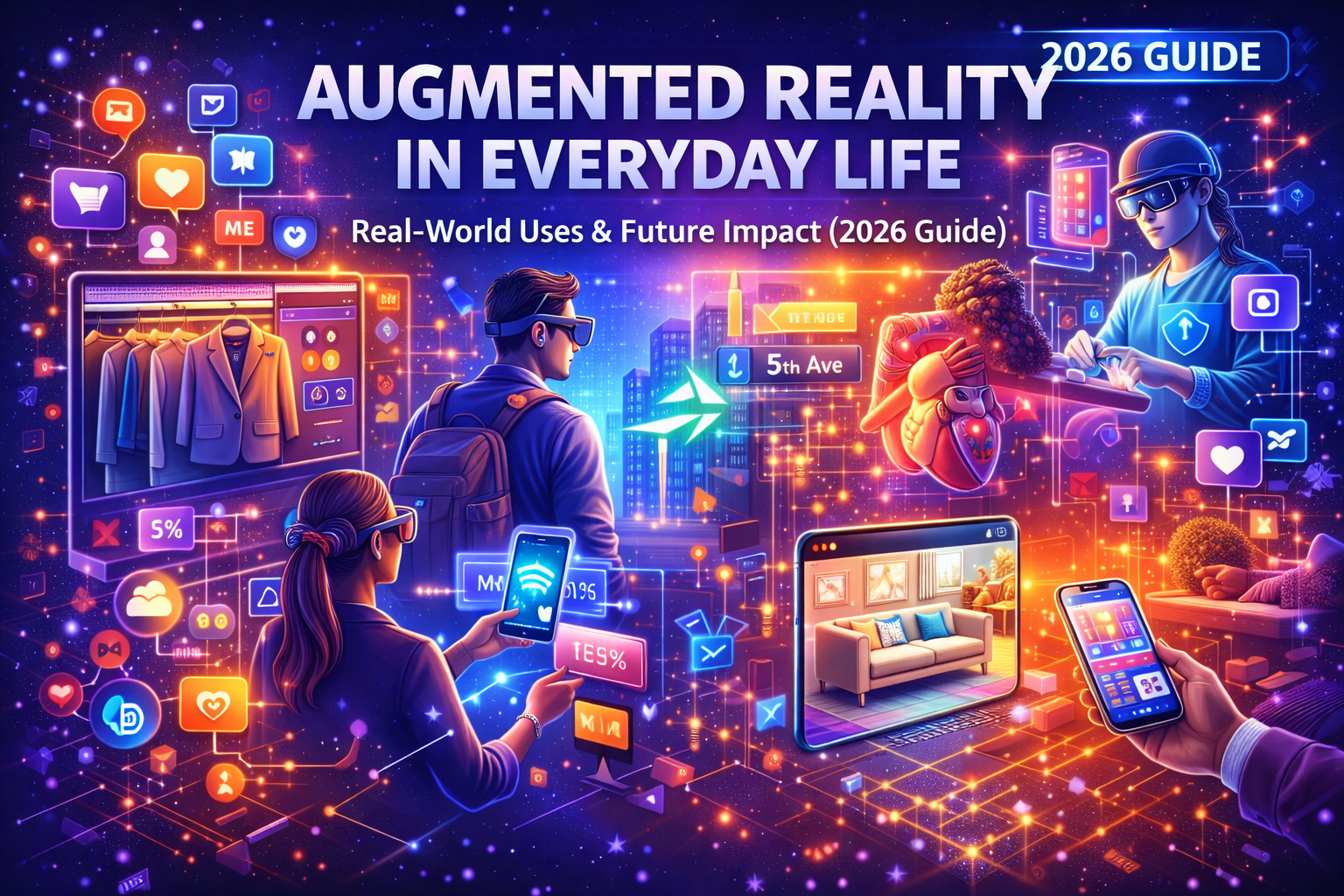


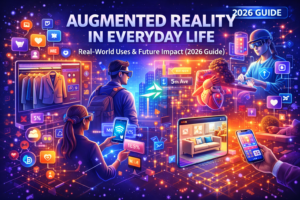
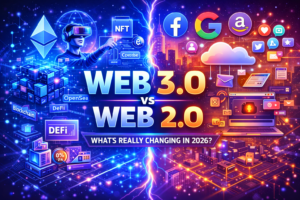

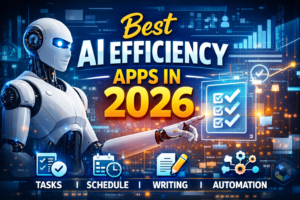
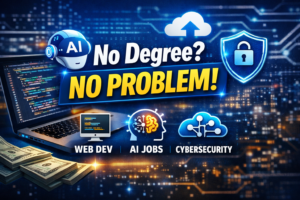



Post Comment